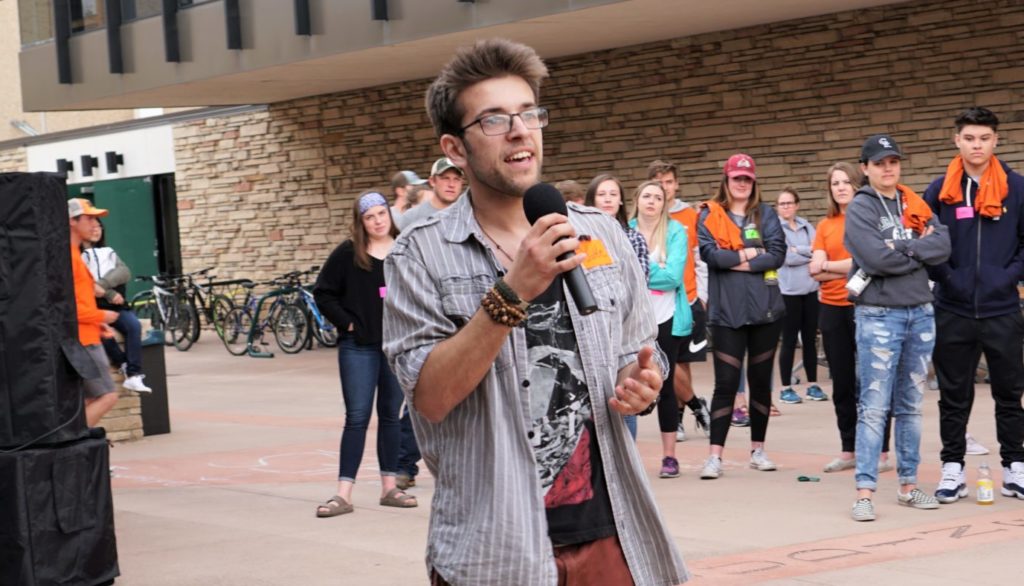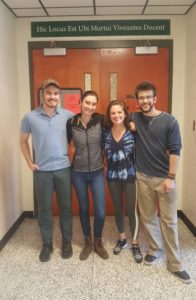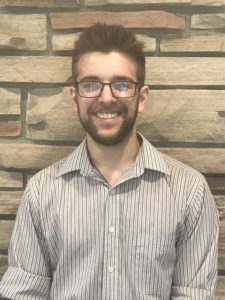
Luke Whitcomb knew that his path to college would not take him far from home. Born and raised in Colorado, Whitcomb was fostered in a community that was supportive and allowed him to chase his goals throughout his formative years, preparing him for his collegiate journey.
“I come from a passionately adventurous, tightly-knit community in Westminster, Colorado,” Whitcomb said. “There, I learned that life is a team sport and that personal success for me involves the success of those around me. I came to CSU to take a crucial step towards becoming a physician, and, interested in human anatomy and physiology, decided to pursue Health and Exercise Science.”
Building a community at CSU
Whitcomb began his journey at Colorado State University with a passion to help people, and it’s a passion that has continued to lead him throughout his experiences at CSU. He sought out opportunities that challenged him as well as others, building a community around learning and growing through his various roles throughout the university.

“Teaching and leadership have been cornerstones of my experience at CSU,” said Whitcomb. “I worked as a Resident Assistant for two years for the Health and Exercise Science Residential Learning Community (RLC) in Corbett Hall, helping to mentor and program for first-year students. I was also a Study Group Leader for TiLT and a Teaching Assistant for Human Gross Anatomy and Human Physiology Laboratory. Even my Honors Thesis involved creating a curriculum and giving lectures to Family Practice Physicians on the clinical applications of exercise science.”
Improving lives through research
Following his need to help people, Whitcomb used his Undergraduate Honors Thesis to identify the gaps in current knowledge of exercise physiology for Family Practice physicians in their first year of residency at University of Colorado Health medical students. His goal was to improve medical providers’ physical activity recommendations during patient encounters. Whitcomb meticulously designed a series of three distinct presentations on the clinical applications of exercise physiology: Essential Clinical Exercise Physiology, Attributes, and Classifications of Physical Activity and Exercise Prescription for Clinical Populations.
His presentations were seen by 30+ doctors and were archived for future education due to its superb content. Luke’s presentation received superior ratings and excellent feedback due to its unique and valuable contribution to physicians’ medical training that may ultimately translate into enhanced patient care and improved chronic disease outcomes.

Overcoming challenges
Despite his successes in research and building communities for fellow residences, being so involved in college life also had its challenges, some not as easy to overcome. Being in a competitive major and dreaming of entering a competitive field, he spoke of the dichotomy of the community he strove to create for his residents and the competition he often felt from his peers. However, a change in mindset helps him reconcile the two.
“Being a pre-medical student comes with its own set of unique challenges,” Whitcomb reflected. “Social and academic climates can often develop some competition, lofty expectations, and a desire to be recognized for excellence. During my time at CSU, I had to arrive at my own understanding of what it means to be a premedical student, learning that our actions should not be dominated by a simple desire to ‘get into medical school.’ Rather, I think we should treat university as an opportunity to rise to new challenges, contribute to meaningful work and mature into individuals ready for a lifetime of learning, problem-solving, collaboration and service.”
After graduation, Whitcomb will be pursuing a Master of Science, returning to CSU in the Department of Biomedical Science. He aims to spend the next few years becoming a researcher and developing his skills as a leader and educator before continuing to medical school. His dream is to become a physician-scientist, working alongside a team to treat patients, contribute to scientific literature, and continually serve and give back to the community. Through his work, Whitcomb hopes to explore much of the nation and the world, creating new connections with a wide variety of populations.
The Department of Health and Exercise Science is part of CSU’s College of Health and Human Sciences.